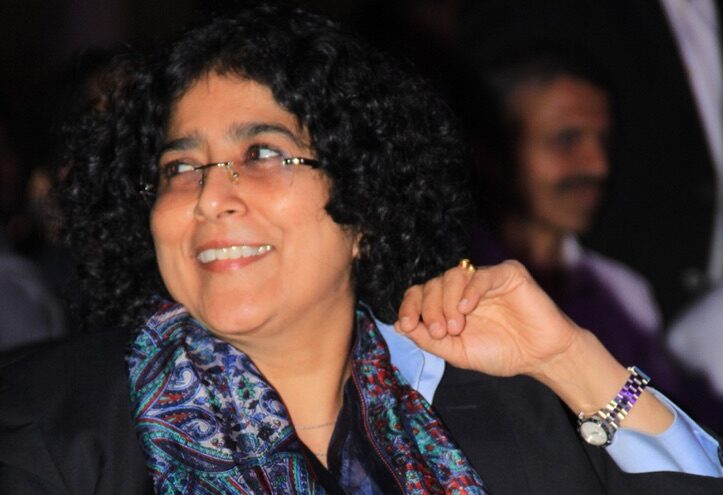
Technical.ly is a free news resource thanks to financial supporters like Truist, which underwrote this story. It was not reviewed before publication. Learn more about Truist, a top 10 US commercial bank..
Throughout her almost 40-year career, Sushma Rajagopalan has not been afraid to try new industries, pursue further education or even move countries.
Devon, Pennsylvania-based Rajagopalan currently works as a partner with venture capital firm Rittenhouse Ventures and cofounded career platform 2nd Careers, which launched earlier this fall.
She started her career in India, though, pursuing a master’s degree in personnel management and going on to work in HR. She moved to the United States in the early 1990s to work for Pittsburgh-based company Mastech where she transitioned to sales. This role gave her a crash course in American business culture, she said.
Then, Rajagopalan dove even deeper. She went back to school again and got her MBA in entrepreneurship and strategy. From there, she bought and sold companies while pursuing company growth consulting work.
In 2012, Rajagopalan moved across Pennsylvania to work for the IT consulting company Liquid Hub, growing both the United States and India operations. After going back to India for a few years, she returned to Pennsylvania in 2019 and leaned into the venture capital world and mentoring young businesses.
Throughout her career, Rajagopalan has taken every opportunity to challenge herself and learn about a new aspect of business. Her career hasn’t been perfect, she said, and she often reflects on what would’ve been if she’d just stayed focused on one thing. But ultimately, she said every move had a lesson and she doesn’t see herself slowing down anytime soon.
In this edition of Technical.ly’s How I Got Here series, Rajagopalan discusses how she learned everything there is to know about operating and growing a business and more.
This Q&A has been edited for length and clarity.
What’s unique about American business culture compared to India?
The biggest difference I found in the United States, you were not stereotyped. People accepted you for your thoughts and ideas. I thought that was refreshing and eye-opening.
I learned the essence of entrepreneurship in the United States. Even today, I don’t stereotype people. I believe that most people can do whatever they set their hearts and minds to do, if they are willing to learn and if they have an open mind.
I’m not discounting the fact that if you have a ton of experience, you can build on that experience. But experience is not the only thing. Learnability, the ability to absorb, the ability to apply what you have learned — that whole entrepreneurial quotient in the business culture is one of the things that I have cherished in the United States.
What attracted you to entrepreneurship?
One of the key things for an entrepreneur is their ability to take risks. My risk-taking ability came much later in life, so I played it safe for a good part of my career.
When I reflect back, the seeds of entrepreneurship had also been sown by my time at Citibank. The investment bank was almost like a small startup within the big company, and very quickly accounted for a disproportionate part of the revenues and the profitability of the business. We gave people the latitude to do what they wanted to do.
My entrepreneurship stint came after, selling the company that I was the president of. I went out and started my own business, which was called Threshold Partners.
I focused on strategy and I focused on mergers and acquisitions. That was the second thing that cemented my idea that one day I would run my own company. I wanted to scale. I was smitten by scale. I always wanted to be able to scale whatever I did.
What are the common threads through all the phases of your career?
The constant ability to challenge myself. I have wondered if I had just stuck with a company, where could I have reached? And the answer that I keep coming back to is I might have even done better in life if I had done that. But would I have had the opportunity to learn almost every facet of business?
I was a CEO of a company. I could have gone and become a CEO of another company, but the world of entrepreneurship and venture capital drew me.
Thanks to my partners, I’ve learned a lot. Of course, I bring the operational experience and the operating experience to the table, but they’ve also exhibited tremendous patience in coaching and learning. I think I have become a more well-rounded person and a well-rounded business person.
What advice would you give someone early in their business career?
Seek mentors. When I was growing up, I didn’t have access to a lot of mentors, particularly women. Surround yourself with people that you can ask questions. There is a conspicuous lack of women mentors for women leaders. So I would say, seek them out, because I think it’s very important. I could have possibly done things differently had I had that.
Constant learning, constant challenging yourself and giving back.







